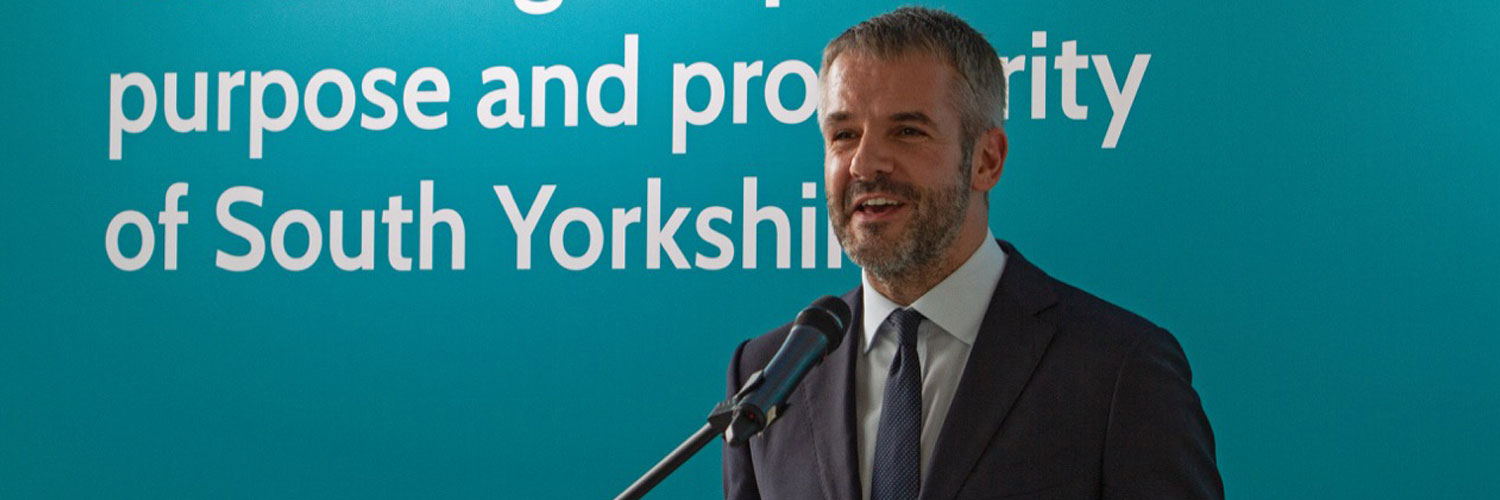
SOUTH YORKSHIRE TRANSPORT SUMMIT
1 March 2023
Thank you all for joining us today.
Who travelled here today by public transport?
And how many of you manage to get your first-choice bus or train?
And the rest of you: put your hand up if you’ve used public transport over the past month?
Look around – this is not a typical group.
We are here today because we are committed to an idea: the idea of effective public transport and infrastructure as a social good. But that idea is not one we can take for granted.
Whether it’s through bad intent or bad planning, its certainly not clear that our national Government support that idea.
South Yorkshire was the most populous region in the country to miss out on BSIP monies – better known as Boris Johnson’s “bus back better” pot.
Our flagship City Region Sustainable Transport Settlement saw South Yorkshire given the lowest amount per head of any city region in England for infrastructure spending.
(A number that looks even worse when you strip out the tram renewal costs DfT officials insisted on bundling in.)
Even when it comes to the fundamental of keeping our buses on the road, we lurch from three-month decision to three month decision, preventing any effective planning from bus operators and making problems like recruitment even worse.
It’s clear we can’t wait for a white knight from Whitehall to ride in and save us.
We need to do this ourselves, and we need to look to those outside this room – beyond the usual suspects – to drive the change we all know we need.
Our challenge, I think, is to begin redefining transport as a social justice issue in South Yorkshire; an effective, reliable, cheap and green public transport system is a social justice necessity, not just a motor for our economy.
If you are born in South Yorkshire, the chances are you will make less money – and be in a lower skilled job - than if you were born elsewhere in the country.
Fixing our broken transport system is one of the ways we change that.
You will die younger living in South Yorkshire than somewhere else. We are slowly being poisoned by the air we breathe. One in twenty deaths in South Yorkshire are caused by complications from air pollution; a child living on a main road suffers the same damage as if they passively smoked ten cigarettes a day.
Fixing our broken transport system is one of the ways we change that.
Promoting active travel, access to culture, improving connections to friends, family, and public services. In short, for all the things that make lives worth living and help us all thrive, we must demand more from our public transport.
Because for too long, we have accepted or tolerated a failing status quo. South Yorkshire deserves better.
That’s why we’re gathered here today, with an emphasis on learning lessons from elsewhere in the country – of understanding what good looks like and how we get there.
I would argue that there is less of a mystery to success than we sometimes think. We recognise this in our public discourse: nationally, everyone aspires to a so-called London-style transport system – by which they mean most journeys are done through walking, cycling or on public transport.
We have our own folk memory of this in South Yorkshire. Until the mid-1980s with privatisation, we had a bus system that was the envy of the world. Delegations would travel here to see what they could learn from us – cheap, reliable, frequent and prioritised buses, connecting the region.
Before that, the rail network connecting our coal communities provided another piece of infrastructure that modern economies so desperately need. It too was lost to the cuts of the 1960s.
Rail connections to other cities have transformed Birmingham or Manchester; while here we have seen HS2’s eastern leg cancelled and any future study of connections from here to Leeds kicked into some very long grass.
And, as the communities of Doncaster will know all too well, the defining challenge of the past year has been the loss of our airport. South Yorkshire has lost two airports in two decades, and Sheffield and Doncaster are the two largest cities in Western Europe without their own airport or access to one by rail.
Each of the knocks we have taken – to our airport, our railways, our buses – is bad enough. Taken together, they are potentially catastrophic. But national Government has shown it can’t - or won’t - take that big picture view. Only we can.
And this is where we have an opportunity. For the first time in decades, South Yorkshire is returning democratic control to its transport system.
Through the Mayoral Combined Authority, we are beginning that integrated, strategic thinking for the region – and showing our communities what a renewed, responsive transport system could look like.
I have been Mayor for 42 weeks. In less than a year, we have:
• Committed to bring our tram network into public control and public ownership from March 2024;
• Accelerated the bus franchising process, so that we can take the steps to reform our buses as fast as the law will allow us;
• Dedicated the last of our reserves to protect bus services until this summer, as well as £5.7m to protect school services until July 2024;
• Introduced £2 cap on adult single bus and tram tickets – 80p for young people – the first general fare intervention since privatisation;
• Stepped in to train a new generation of bus drivers;
• Invested £100 million in 2022/23 on bus, tram and active travel infrastructure across South Yorkshire;
• Taken the difficult decision to raise local authority transport levies for the first time in a decade – signalling our political commitment to sorting out public transport finances;
• Launched an inquiry into future of strategic infrastructure, to make sure that what happened to DSA cannot happen again as and when we restore our airport; and
• As you’ll hear next, we’ve appointed Barnsley’s own Ed Clancy as our new Active Travel Commissioner.
Those ten months of activity are a down payment on our future. The Government has set itself the goal of delivering London-style transport everywhere by 2030. We’re 42 weeks down; 357 to go.
Behind these policies sits a new guiding philosophy: transport as a public service, democratically controlled. Trains, buses, bike lanes that are responsive to our communities, rather than the wants of distant bureaucrats or shareholders.
I recognise and welcome the passion many in the transport sector feel for delivering services to the travelling public: day in, day out. I want to work in a new partnership with transport workers on the ground, whether they’re public or private.
We will need to work in partnership, and as close to our communities as possible, because success will require changing hearts and minds as well as the logo on hardhats and high viz.
Changing things quickly will require hard choices. Lots of us will need to change our behaviour; form new habits.
This won’t be easy.
At the same time as we’ve lost our world class public transport system, our society has become more and more dominated by the car. Unlike some other regions, we saw a 23% rise in the number of cars per household over the past twenty years. We’re travelling further than ever before for work, shopping, and leisure.
I’ll be honest: I for one couldn’t imagine getting by without a car. But the choice shouldn’t be as one sided as it as at the moment. We need public transport and active travel to become a no-brainer.
That would have a double benefit of supporting inclusion in South Yorkshire. 27% of households have no access to a car. People from lower income households are more likely to be cyclists than the stereotype of middle-class men in lycra.
When we introduced our £2 fare cap on the buses, we found that most of the benefit went to the communities suffering most from deprivation.
But where there is a challenge to existing habits, people will need to be convinced of the case for change. Simply imposing it without that public support risks a backlash.
We need to explain that this is about expanding choice for different ways of travel, and striking a better balance between health, cost and reliability than we have at the moment.
The size of the prize, if we can make this work, is great.
This is about the type of community we want to live in. Not polluted, congested, isolated and isolating – but green, community-focused, healthy and efficient.
A baby being born today in Doncaster should grow up breathing clean air. By 2030, when she turns seven, we want her to be able to walk or cycle safely to school with her friends; jump on a cheap, reliable bus to see her grandparents or play football at the weekends.
A child who is ten years old today will be at a crossroads in their life by 2030. Do they want to go straight to work? Get an apprenticeship? Or maybe move away from home for the first time, off to university in the region or further afield.
When they make that choice, their life chances should not be restricted by poor, unreliable and costly transport. They should not be forced to buy a car they can barely afford.
And for all of us, this is about showing that change is possible. We are fixing public transport, but it is part of a wider effort to restore faith in politics, our governance, and our democracy. We are taking back control in South Yorkshire; people need to feel that.
We can’t do it all ourselves, of course. We will need an ambitious partnership with Government to achieve some of our goals:
• a north-south electrified railway linking up Sheffield, Rotherham and Barnsley Dearne Valley to Leeds and beyond, acting as an electric railway spine for Yorkshire.
• expanding the A1(M) around Doncaster.
• Tram extensions to rival the billions of pounds being spent in Greater Manchester and the West Midlands. We already have a UK-leading technology here with tram-train. Lets put it to work.
• And we need a needs-based funding formulae for South Yorkshire. We spend our time writing bids and funding glossy documents, rather than getting grips with the practicalities of improving day-to-day services.
We demand our fair share. Our communities are just as valuable as those in the South East.
Taken together, these investments would be transformative. But transformation is what our communities are crying out for.
We need to use all the levers we posses and be more insistent that the UK Government uses theirs.
It’s time to deliver the improved connectivity and more liveable communities that South Yorkshire deserves.
This Summit is an opportunity for us to hear what other places are doing. What lessons can we learn, to inspire us. If they can do it, why can’t we?
My challenge to you all is to go out, after today, and make that case: in your workplaces, your neighbourhoods, your communities.
The backlash we have seen even here in Doncaster against innocent concepts like the “15 Minute City” show that we need to go out and persuade.
Take a moment to think of two people in your own life you will need to persuade.
What do you need to say to make them change their mind? How can you sell the benefits of change?
It is not too much to ask for better. Being able to wander down the road from your home and see a GP, send off your post, get to a bus stop, green space, a nursery and somewhere for a tea or coffee.
This is not radical. This is the world our parents or our grandparents took for granted. This is the world our children and grandchildren deserve.
So use your conversations today to ask: how will you make this world a reality for them?
What will you do this week? This year? Over the next decade?
If you can rise to this moment, then - together - we can fix South Yorkshire’s public transport.
Thank you.



